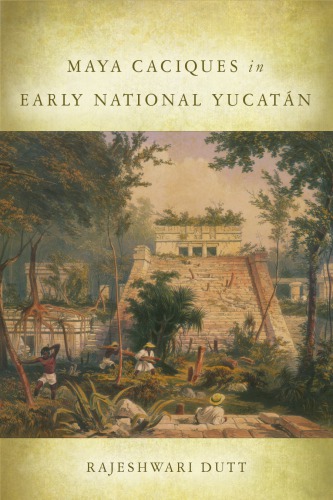Product desciption
Maya Caciques In Early National Yucatn Rajeshwari Dutt by Rajeshwari Dutt 9780806155784, 0806155787 instant download after payment.
Andrés Canché became the cacique, or indigenous leader, of Cenotillo, Yucatán, in January 1834. By his retirement in 1864, he had become an expert politician, balancing powerful local alliances with his community’s interests as early national Yucatán underwent major political and social shifts. In Maya Caciques in Early National Yucatán, Rajeshwari Dutt uses Canché’s story as a compelling microhistory to open a new perspective on the role of the cacique in post-independence Yucatán.
In most of the literature on Yucatán, caciques are seen as remnants of Spanish colonial rule, intermediaries whose importance declined over the early national period. Dutt instead shows that at the individual level, caciques became more politicized and, in some cases, gained power. Rather than focusing on the rebellion and violence that inform most scholarship on post-independence Yucatán, Dutt traces the more quotidian ways in which figures like Canché held onto power. In the process, she presents an alternative perspective on a tumultuous period in Yucatán’s history, a view that emphasizes negotiation and alliance-making at the local level.
At the same time, Dutt’s exploration of the caciques’ life stories reveals a larger narrative about the emergence, evolution, and normalization of particular forms of national political conduct in the decades following independence. Over time, caciques fashioned a new political repertoire, forming strategic local alliances with villagers, priests, Spanish and Creole officials, and other caciques. As state policies made political participation increasingly difficult, Maya caciques turned clientelism, or the use of patronage relationships, into the new modus operandi of local politics.
Dutt’s engaging exploration of the life and career of Andrés Canché, and of his fellow Maya caciques, illuminates the realities of politics in Yucatán, revealing that seemingly ordinary political relationships were carefully negotiated by indigenous leaders. Theirs is a story not of failure and decline, but of survival and empowerment.


